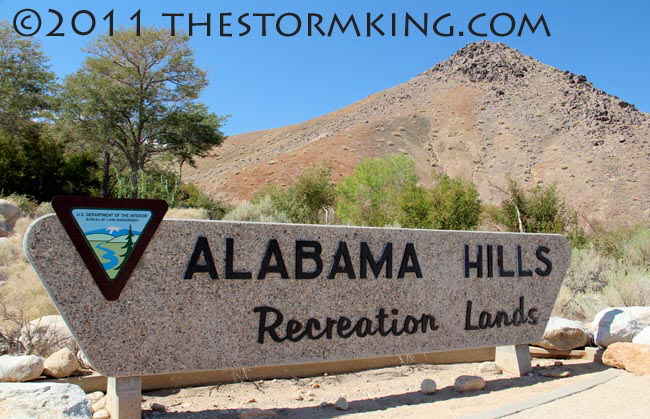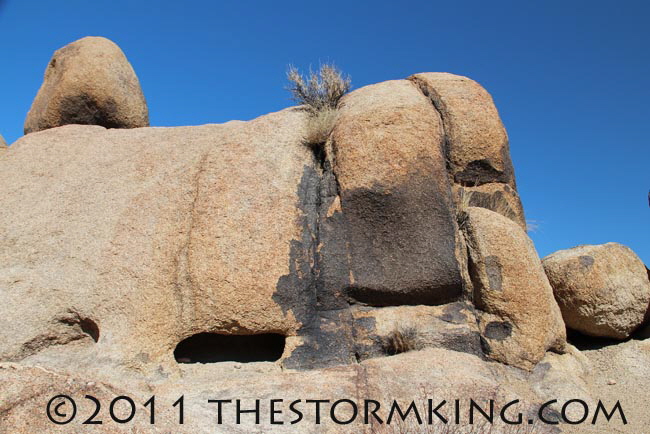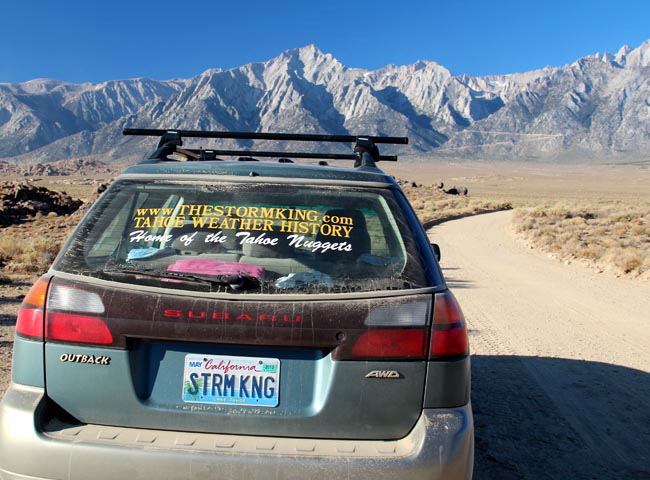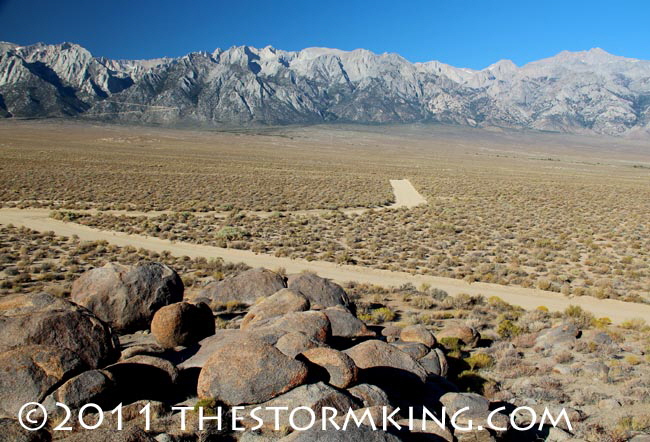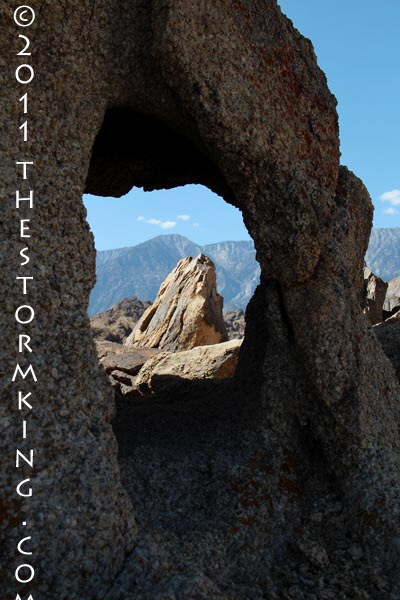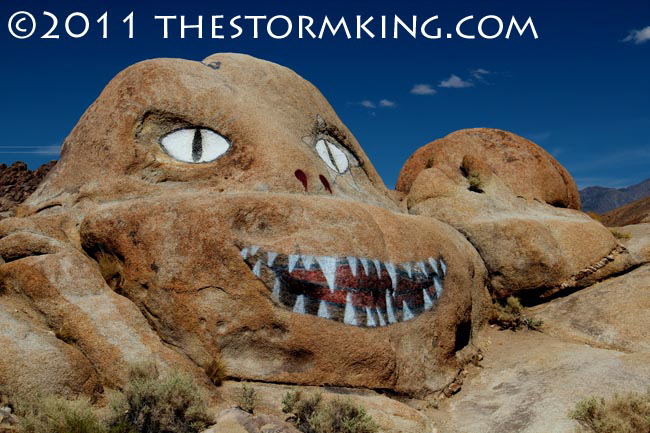|
Tahoe Nugget #216:
Alabama Hills: Movie Mecca
October 3, 2011
I recently returned from a quick 3-day field trip to the Owens Valley along the eastern flank of the Southern Sierra. I based my reconnaissance in Bishop, but on the first day of exploration drove south
about 60 miles to Lone Pine, California. From there access roads reach into the Alabama Hills, a popular movie set location, and also up into the Whitney Portal with its view of Mt. Whitney, highest mountain peak in
the lower 48 states.
The Alabama Hills Recreation Area is located just west of Lone Pine, California.
Many Americans have seen the Alabama Hills, although they may not know it. More than 400 movies, commercials
, and TV shows have been filmed in this area, including early British Army-in-India classics like Gunga Din. The
region's stunning desert beauty capped by the huge granite wall that is the Eastern Sierra Front has attracted directors and filmmakers since the early 1920s.
Classic western films with scenes shot in the Alabama Hills include How the West Was Won, Bad Day at Black
Rock, and the popular television show The Lone Ranger. Several John Wayne westerns were filmed here, and other veteran Hollywood actors like Errol Flynn, Gregory Peck, Kirk Douglas, Cary Grant, Debbie Reynolds, and
Robert Mitchum appeared in movies shot in this iconic location.
An elephant pushing a ball? Just one of many formations that suggested animals or other fantastical images to my mind.
Even if you're not a fan of old westerns, the region is still popular with Hollywood directors. More recent movies
filmed here include Tremors, Joshua Tree, and Gladiator starring Russell Crowe. Star Trek fans may recognize the
area from scenes in Star Trek Generations and superhero worshippers will see the Alabama Hills in Iron Man.
Disney producers utilized the terrain for the movie Dinosaurs, and many parts of Transformers: Revenge of the Fallen were filmed here.
Despite 151,000 miles on the odometer, my trusty 11 year old Subaru performed flawlessly.
Each October the nearby town of Lone Pine capitalizes on the region's movie history by hosting the Lone Pine Film
Festival. The event features movies, discussion panels, an arts and crafts show, and guided tours of the movie locations.
It's easy to imagine a horse-drawn stagecoach racing along this dusty road.
The granite and volcanic rocks of the Alabama Hills are geologically part of the Sierra Nevada, but the soft,
rounded contours of the Alabama terrain offer stark contrast to the knifelike sharpness of the Sierra ridgeline, a
difference of erosion and weathering. The alpine climate of the High Sierra with its continual freezing and thawing
cycle breaks the range into angular blocks along cracks in the granite, forming the splintered crest of the Sierra.
In addition to many interesting rock formations, the Alabama Hills boast several arches chiseled by the elements. This is not one of them!
Thousands of feet lower in elevation, the Alabama rock formation was once buried in alluvial sediments where
water seeped into vertical joints. Once erosion exposed the rock to the desert wind and occasional rain event, the
Alabama Hills weathered into large potato-shaped boulders, many etched with a dark desert varnish of oxidized iron minerals in the rock.
The Alabama Hills were named after a Confederate warship that preyed on Union vessels during the Civil War.
Built for open-ocean raids on Union merchant and naval ships, the C.S.S. Alabama burned, sunk, or captured
more than 60 Federal ships in less than two years. After the discovery of gold in the area in the early 1860s,
southern prospectors began naming their mining claims after the legendary Confederate sloop-of-war. Soon the name came to apply to the entire range.
Jabba the Hutt from Star Wars!
Not to be outdone, after the Alabama was sunk by the Union warship U.S.S. Kearsarge off the coast of France in
1864, pro-Union Sierra prospectors struck back by naming a mining district, a mountain pass, a peak, and town after the Kearsarge.
|



